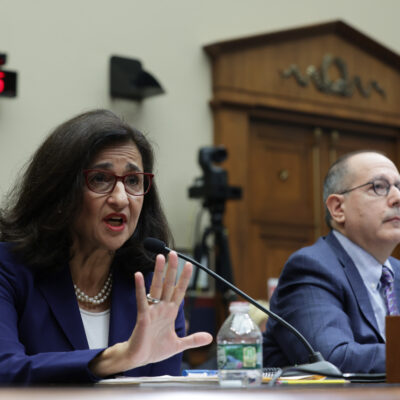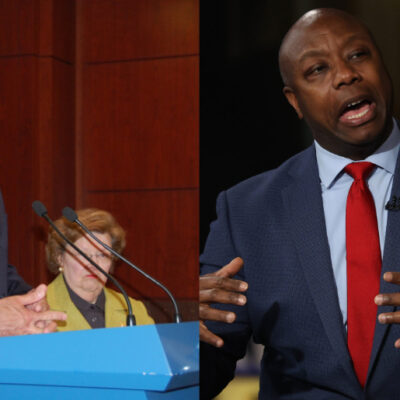Annual UJA-Fed dinner honors Marc Rowan and Aryeh Bourkoff

The UJA-Federation of New York held its annual Wall Street Dinner virtually last night, raising $31 million. Apollo Global Management co-founder Marc Rowan received the Gustave L. Levy Award, while LionTree founder and chairman Aryeh Bourkoff received the Alan C. Greenberg Young Leadership Award. While the event focused heavily on UJA’s efforts in the community, all of the evening’s speakers addressed the rise of antisemitism in the United States.
COVID comparison: Writer Bari Weiss, the event’s keynote speaker, called antisemitism “a virus that travels in the immune system or that travels in the kind of DNA, if you will, of Western civilization. If you put it that way, it sounds really scary. But the good news is that when the immune system of a given society or given culture is strong, just like with a virus, it doesn’t express itself,” Weiss explained. “It’s when the immune system of a society is weakened, and the immune system of America right now is weakened in all kinds of ways, antisemitism begins to express itself. Also, like a virus, antisemitism is always mutating. It’s extremely, extremely resilient, probably more resilient in the end than this current coronavirus.”
Strength in numbers: Rowan encouraged the Jewish community to heal internal divisions before they have external consequences. “In my opinion, the Jewish community in the U.S. at the moment is weak. We are weak not because we should be, not because there’s some structural impediment to us being strong as a community,” he said. “We are weak because we are divided. If one looks back in history, history has not been kind to the Jews when they are divided. The divisions that I’m focused on are divisions of politics, divisions of culture, and divisions of level of observance, each of which, in their own way, has led to a fracturing of the Jewish community and the Jewish voice.”
Looking ahead: Bourkoff cited the recently signed normalization deal between Israel and the United Arab Emirates in providing a positive outlook. “Optimism does not require averting our gaze. It demands looking closer and seeing even further. We need to go forward to extraordinary, not back to normal. Let us take not only what we can carry, but what will carry us,” Bourkoff said. “The rest — injustice, stagnation, the rank or the status quo — we leave behind. Just a few weeks ago, I visited the Arabian Peninsula in the wake of the Abraham Accords, experiencing how an ancient civilization and a young country embraces the future. I saw fruit in a market in Dubai that was grown in Israel. Sometimes progress looks like a grapefruit. And sometimes it looks like the prime minister of Israel, visiting Saudi Arabia and meeting with its crown prince. The world becomes smaller when horizons become larger.”








